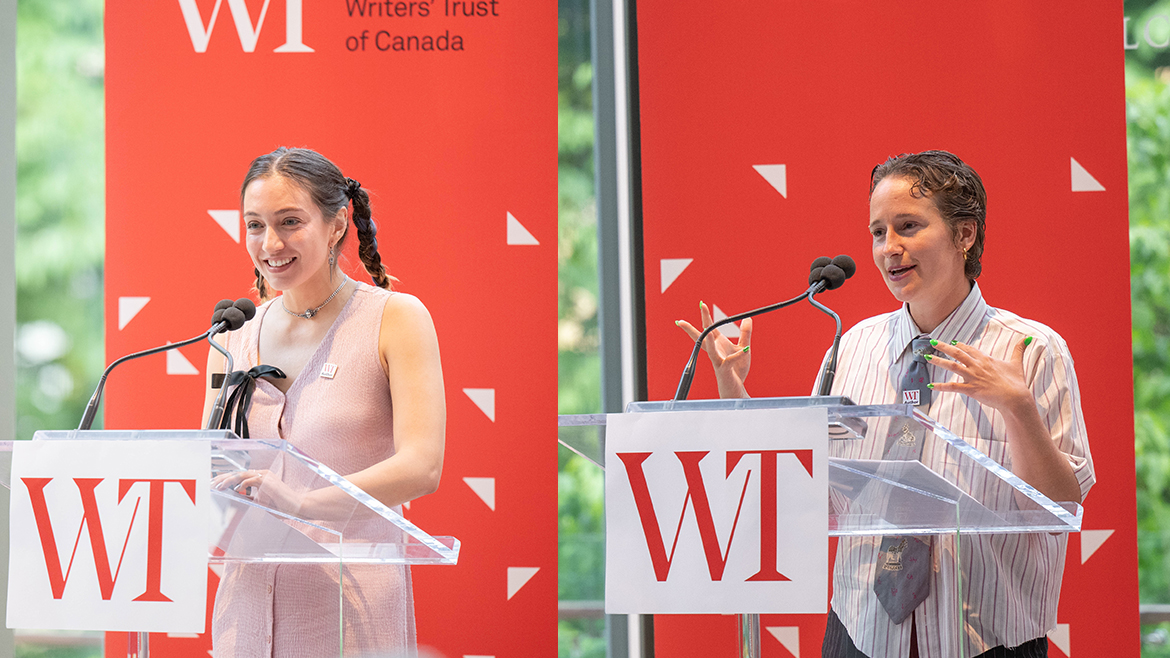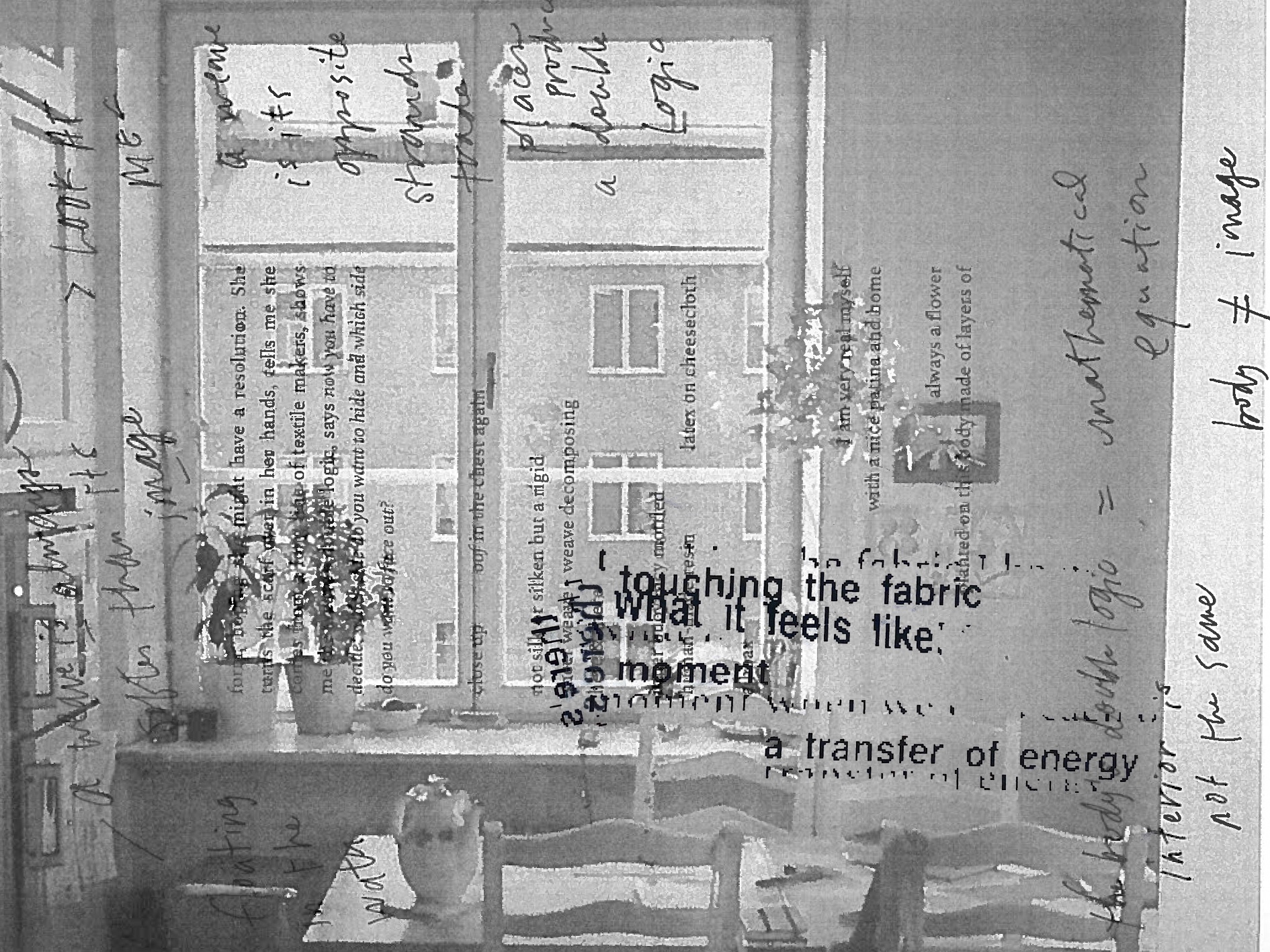

Collage from Sheryda Warrener's Test Piece
Curated by Christine Palka, Creative Writing
This spring, we’re celebrating the writing, reading and sharing of poetry.
We asked some of our alumni, faculty and students to share a piece of their poetry with us.
Here are ten excerpts for you to enjoy.
NDN Coping Mechanisms: Notes from the Field
By Billy-Ray Belcourt, Associate Professor
We all owe something to someone, so we congregate
under the presumption of debt and this is always-already.
We all joke about falling in love with our cousins,
but we are all perpetually falling in love with our cousins
in a platonic way, because we grew up together and
no one was alienated by the tyranny of the couple form.
Vehicles pass through in droves, but no one looks, so we disappear,
hands intertwined, into the freedom of a shimmering anonymity.
from “The Terrible Beauty of the Reserve after Saidiya Hartman”


About the book
In NDN Coping Mechanisms: Notes from the Field, Billy-Ray Belcourt aims an anthropological eye at the realities of everyday life to show how they house the violence that continues to reverberate from the long twentieth century.
In a genre-bending constellation of poetry, photography, redaction, and poetics, Belcourt ultimately argues that if signifiers of Indigenous suffering are everywhere, so too is evidence of Indigenous peoples’ rogue possibility, their utopian drive.
Little Wild
By Curtis LeBlanc, BFA ’13, MFA ’17
They gave him a bad watercolour: two men
surveying a dirt road flanked by standing
water and train tracks stretched thin to three
red grain elevators no longer in operation.
The men stand behind their yellow tripods,
measuring the distance between something
and nothing. It is almost winter. Everything
is dead or dying. The trees hold no leaves.
The canola, barbered down to stubble.
For twenty-five years my father has been
assessing, with the precision of a person
born into nothing, the unpaved road to
something. I have watched him mark
the milestones like the longer lines
on a ruler—kneeling at the edge of the teak
coffee table, raising the orange cat high
above his split-level empire of berber
carpet and second-hand furniture.
“In Recognition of a Quarter Century of Contribution to UMA”
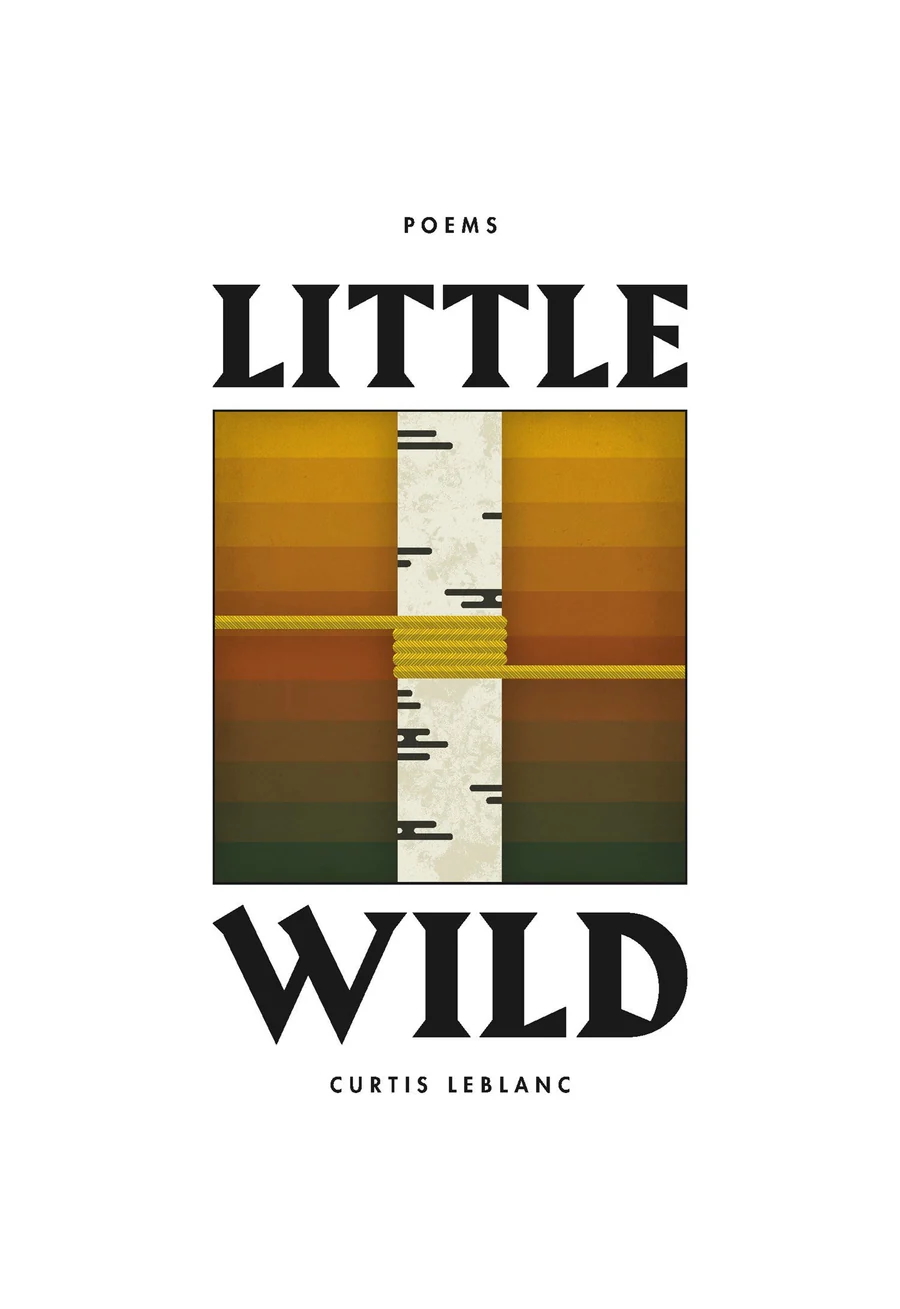

About the book
Little Wild explores the performance of masculinity in contemporary Canada, with a focus on how toxic masculinity relates to mental health, aggression, substance abuse and crises of identity.
Through the reimagining of family histories and personal experiences, the poems in this collection exact a representation of a young man in conflict with outdated ideals of virility, struggling to redefine himself on his own terms.
Exculpatory Lilies
By Susan Musgrave, Lecturer
When I go to the river with my trouble,
and sit under the big trees, I see my girl again.
Her dress is the colour of soft butter.
Her hunger tastes of whiskey and rain.
Behind us is darkness, and darkness lies ahead.
The worst kind of pain is to miss someone
you’ve never known, and worse, never will.
The emptiest days are loveliest, only
people with desires can be fooled,
and I have none.
from “Hunger”
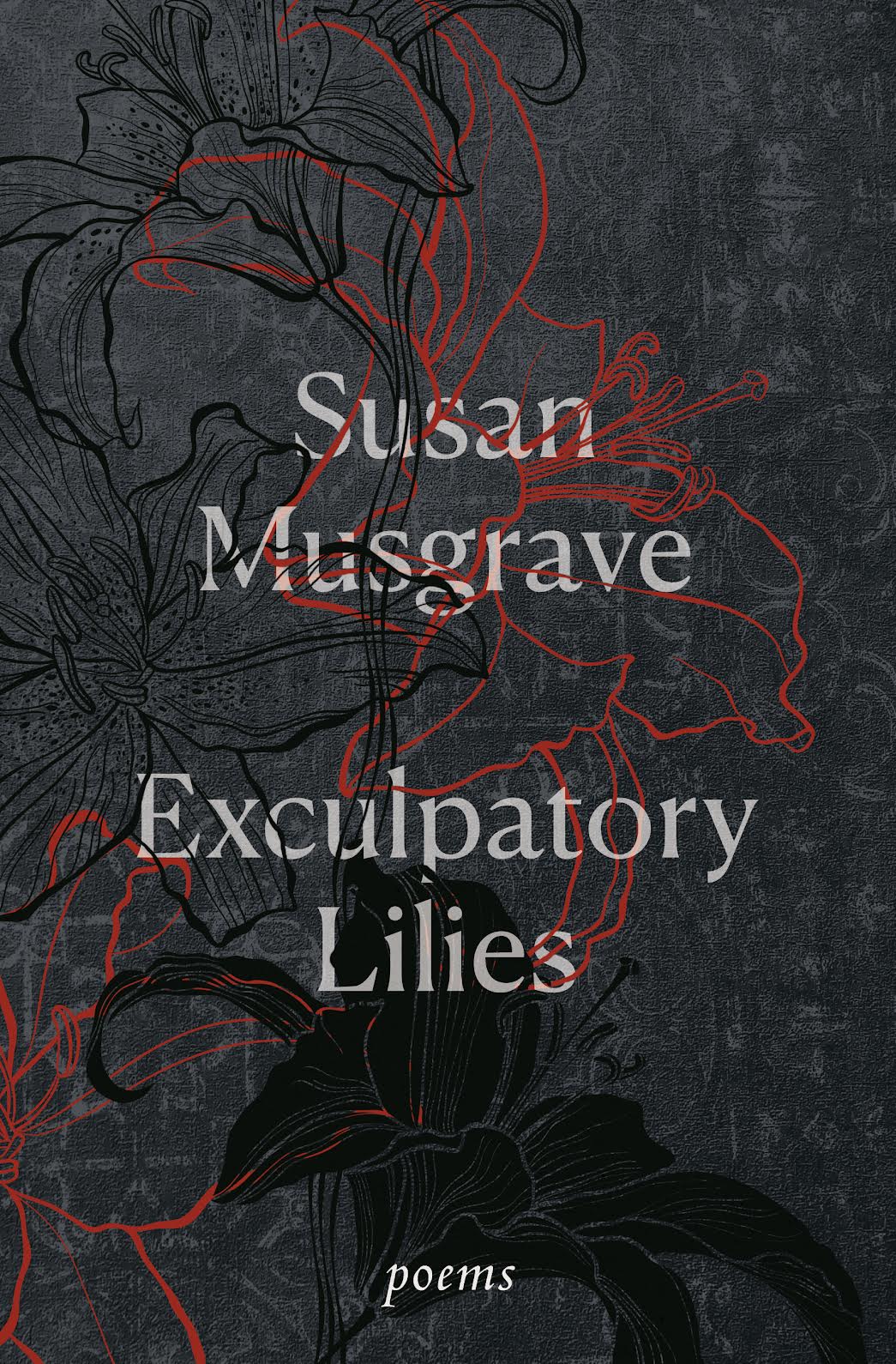

About the book
If grief is the willingness to be claimed by a story bigger than ourselves, Susan Musgrave writes, “in that / tender wavering, I let grief in,” responding to the death of her partner, Stephen Reid, in 2018. Following this traumatic loss, in September 2021, their daughter, Sophie, died of an accidental overdose after a twenty-year struggle with addiction.
But to say Exculpatory Lilies is solely about grief would be to miss the whole nature of Musgrave’s voice and sensibility. Throughout this collection, Musgrave’s alertness to even the most desolate places makes her personal sorrows astonishingly potent; and her scrutiny of language, and emotions, makes shot silk out of sackcloth and ashes.
Crowd Source
By Cecily Nicholson, Assistant Professor
late summer to early spring in tributaries
family forms destined for consolidation
sometimes a cloak above Grandview Highway
in parallel commute to the dissociate autos below
sometimes they fly past my balcony storeys up
could I lean out
we would brush feathers and remember each other
rarely conspicuously alone across open country
rarely flapping in particularly straight lines
maneuvering as the fray demands
wings broad and rounded with the wing tip
feathers spread like fingers
a patient, methodical flapping movement is air
we hear the moving, rare in the city to hear the air
from Crowd Source (p. 60)
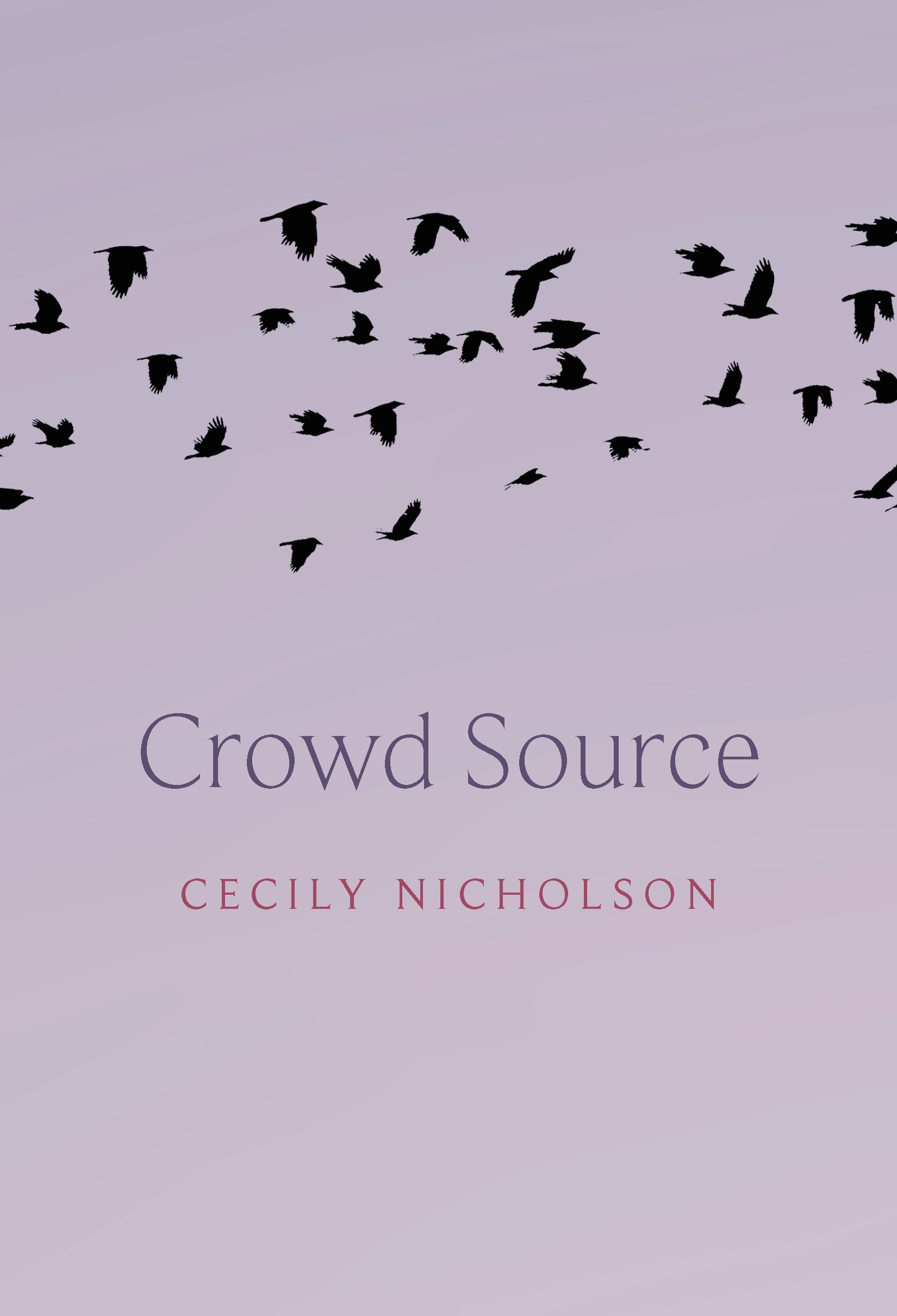

About the book
Crowd Source parallels the daily migration of crows who, aside from fledgling season, journey across metro Vancouver every day at dawn and dusk. Continuing Cecily Nicholson’s attention to contemporary climate crisis, social movements, and Black diasporic relations, this is a text for all concerned with practising ecological futurities befitting corvid sensibilities.
Some Days
By Nisha Patel, MFA student
some days I forgive myself for loving the things men love:
all-in-one shampoo; Formula 1 race cars; Fight Club
some days I love the things I have loved:
ninth grade; the Tunisian boy who taught me to rollerblade; 50 cent samosas on the corner
when the Ativan wears thin I become a fish suffused in the waters of my memory
I dream of a mirage where the teenagers put the eggs
back before they meet the walls of my house
girls like me, we are what we eat: I’m a chicken, not a love-letter. this, I love, too
performed on CBC’s Poetic License
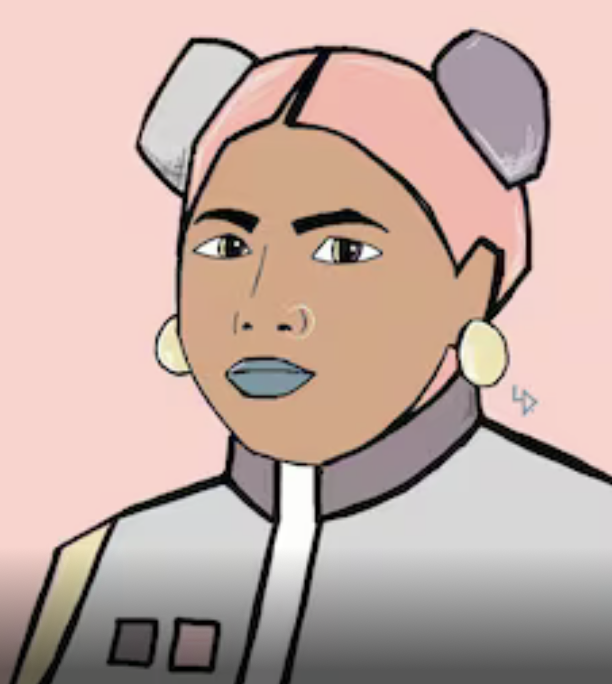

About CBC’s Poetic License
Poetic License is a CBC Arts program that features videos of various Canadian poets performing their work. It showcases a range of talent, including emerging poets, award-winning writers, and poets laureate, aiming to celebrate Canadian poetry and diverse voices. The program often explores themes of identity, social justice, and contemporary issues.
Sonnet to claim nothingness
By Dora Prieto, MFA ’24
Today I do nothing I’m not
moisturized, glowing, or unbothered
I’m dry, empty, can’t speak to anyone
So I go to a graveyard to write sonnets
& tell a tree all about my third Abuelita
How she would microdose & sing rancheras
Poolside, tequilita, sharp beak, mottled wings
She was last of my grandmothers
& I feel a tie to the past has been cut like hair or
Her laugh through a silence & songs she sings or sang or sung
The lungs & hinge of her now waiting for us in a great dark
Have you ever not gotten there on time, sworn off the stuff
Only to grow old & feel your tits sag & your love weighted
The tie fraying, not fully cut, tugging, pleading, let me go let me go
published in Maisonneuve Magazine (Fall 2024, Issue #93)
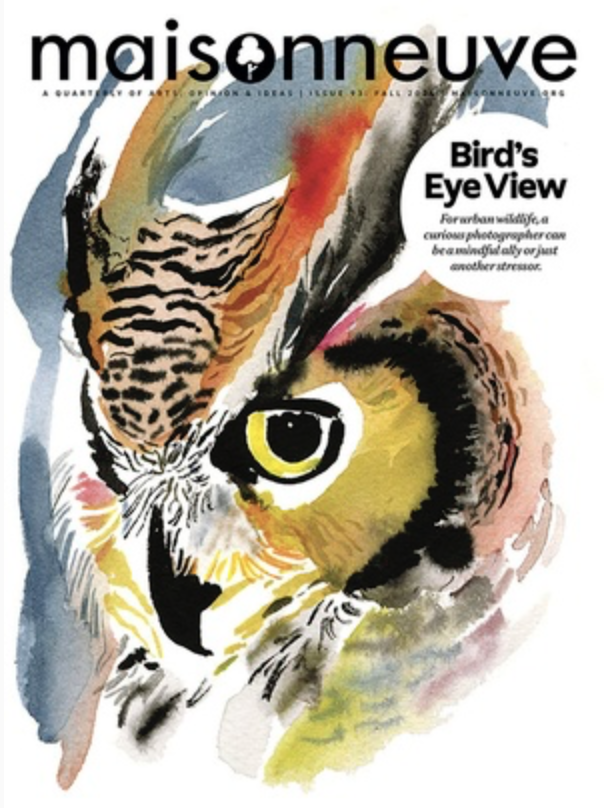

About the magazine
Maisonneuve has been described as a new New Yorker for a younger generation, or as Harper’s meets Vice, or as Vanity Fair without the vanity—but Maisonneuve is its own creature. Maisonneuve’s purpose is to keep its readers informed, alert, and entertained, and to dissolve artistic borders between regions, countries, languages and genres. It does this by providing a diverse range of commentary across the arts, sciences, daily and social life. The magazine has a balanced perspective, and “brings the news” in a wide variety of ways. At its core, Maisonneuve asks questions about our lives and provides answers free of cant and cool.
Scattered Oblations
By Cooper Skjeie, MFA student
according to my government
we are no longer landless
still, i no less long for land
despite gravity and blue ink
for the where of blues, i spite gravity
spread across the faces of my family tree
on the tree my family faces: a cross
carved gently by the hand imagined
gentle is the hand i imagine
lodged beneath a willow
build a lodge behind the willow, then
call it something like freedom
i’ll call you there, free–
prairie earth winds the contours of government
“duplex (no longer land/less)”
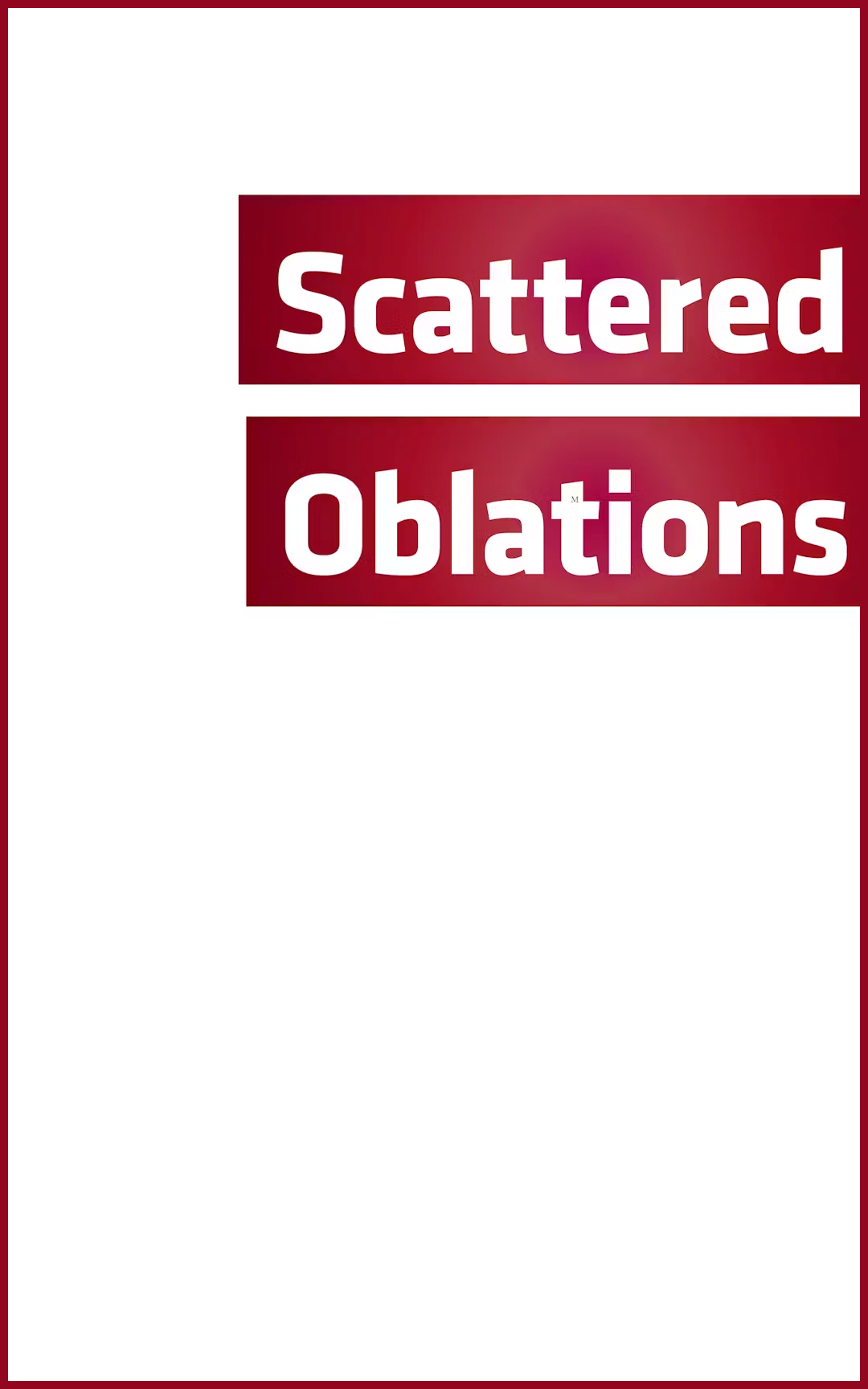

About the poem
Cooper Skjeie’s poem was published by The Writers’ Trust of Canada when he received the RBC Bronwen Wallace Award for Emerging Writers in 2023. It first appeared in an excerpt of his collection called Scattered Oblations on Apple Books, then later in print as part of a commemorative book for all of the Bronwen Wallace Award finalists in 2023.
The Silk the Moths Ignore
By Bronwen Tate, Associate Professor
Baby cries no lullabies
can calm I pace
the floorboards creak
I sway they squeak
Her still stern face listening
“In Sleeplessness”
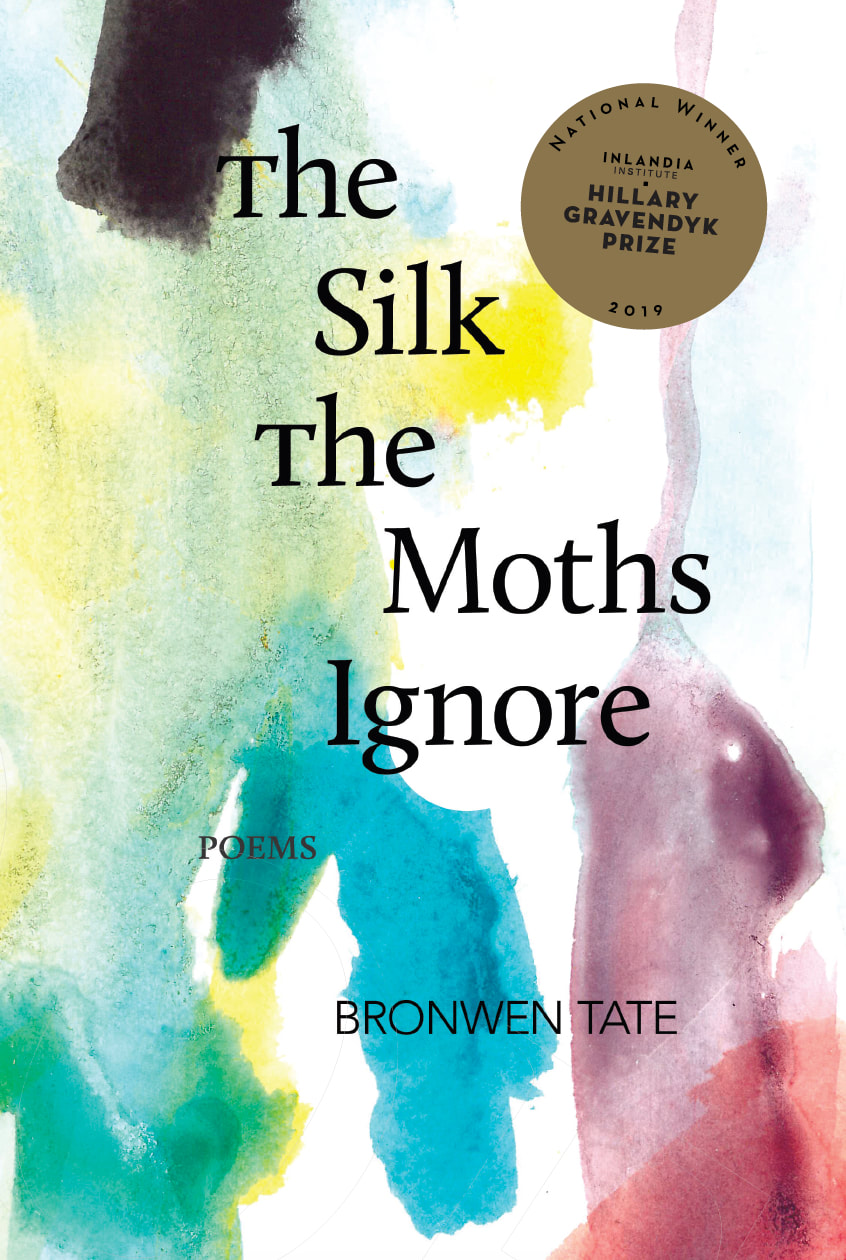

About the book
The Silk the Moths Ignore animates the liminal, sometimes gothic, spaces of miscarriage, pregnancy, and early parenthood with exquisite defamiliarizing detail.
Weaving together prose versets, sonnets, and short poems with titles like “Against Choking” and “To Acknowledge Damage,” the collection sings, bleeds, and casts spells to “carry hope like a weight.”
This Will Be Good
By Mallory Tater, Lecturer
My sisters and I watch Blair Witch Project
and whine over a bowl of saltless pretzels.
Meredith sick in the sitter’s arms. Brenna feeds
her fruit lozenges, tucks all of us into bed
before the witch appears. My mind barely leaves
that forest in Maryland, those three lost teens
finding fistfuls of branches, baskets of fingers.
from “Sitter”


About the book
This Will Be Good tells the story of a young woman’s burgeoning femininity as it brushes up against an emerging eating disorder. As the difficulties of her disease reveal themselves, they ultimately disrupt family relationships and friendships.
These poems deftly bear witness to the performance of femininity and gender construction to reveal the shrinking mind and body of a girl trying to find her place in the world, and whose overflowing adolescent hope for a future will not subside.
Test Piece
By Sheryda Warrener, Lecturer
The discovery of a carved female figure
is considered invaluable not
by surviving eight thousand years
but by the rarity of its precise
wholeness. Is there such a thing? And can I
know it?
from “A Fixed Point”


About the book
Though they started from Sheryda Warrener’s impulse to see herself more clearly, The poems in Test Piece ended up becoming more expansive meditations on seeing and vision. They engage with the process and practice of art-making, and specifically with abstract minimalist works like those by Eva Hesse, Anne Truitt, Ruth Asawa, and Agnes Martin.
Not-seeing/not-knowing is a motif, as is weave, grid, pattern, rhythm of interiors, domestic life. These poems are informed by collage, by the act of bringing images and lines together. With their echoes and reverberations (hand, mirror, body, clear, form, face), a greater complexity is revealed.

